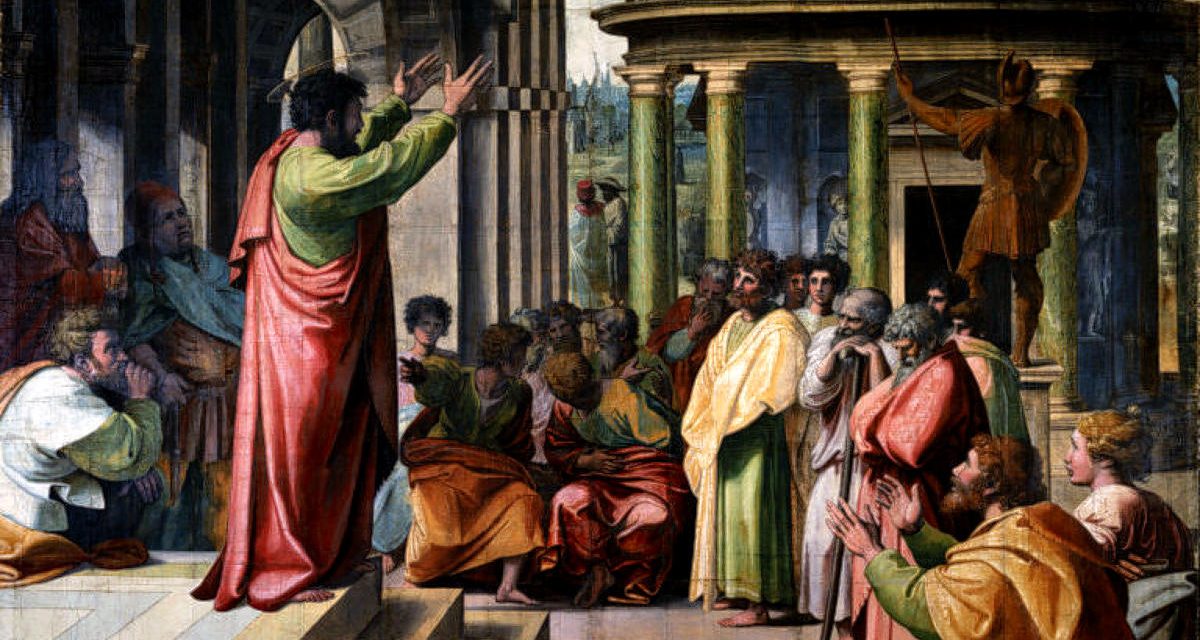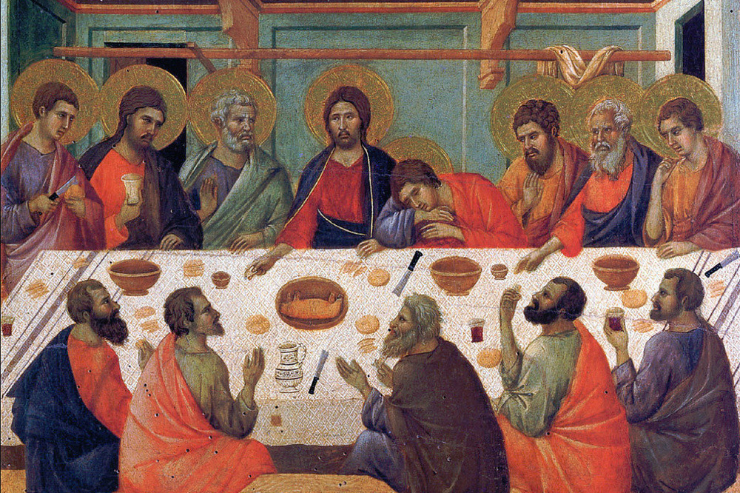Our lives must be our thanksgiving, as Paul describes in today’s Epistle. We must tell everyone the good news, the purpose for which Jesus has come—that others, too, may have a share in this salvation.
Readings:
Job 7:1–4, 6–7
Psalm 147:1–6
1 Corinthians 9:16–19, 22–23
Mark 1:29–39
In today’s First Reading, Job describes the futility of life before Christ.
His lament reminds us of the curse of toil and death placed upon Adam following his original sin (see Genesis 3:17–19). Men and women are like slaves seeking shade, unable to find rest. Their lives are like the wind that comes and goes.
But, as we sing in today’s Psalm, He who created the stars promised to heal the brokenhearted and gather those lost in exile from Him (see Isaiah 11:12; 61:1). We see this promise fulfilled in today’s Gospel.
Simon’s mother-in-law is like Job’s toiling, hopeless humanity. She is laid low by affliction but too weak to save herself.
But as God promised to take His chosen people by the hand (see Isaiah 42:6), Jesus grasps her by the hand and helps her up. The word translated “help” is actually Greek for “raising up.” The same verb is used when Jesus commands a dead girl to arise (see Mark 5:41–42). It’s used again to describe His own resurrection (see Mark 14:28; 16:7).
What Jesus has done for Simon’s mother-in-law, He has done for all humanity—raised all of us who lay dead through our sins (see Ephesians 2:5).
Notice all the words of totality and completeness in the Gospel. The whole town gathers; all the sick are brought to Him. He drives out demons in the whole of Galilee. Everyone is looking for Christ.
We too have found Him. By our baptism, He healed and raised us to live in His presence (see Hosea 6:1–2).
Like Simon’s mother-in-law, there is only one way we can thank Him for the new life He has given us. We must rise to serve Him and His gospel.
Our lives must be our thanksgiving, as Paul describes in today’s Epistle. We must tell everyone the good news, the purpose for which Jesus has come—that others, too, may have a share in this salvation.
This reflection appears here with the kind permission of the author. Please visit and support Dr. Hahn’s website at the St. Paul Center for Biblical Theology.
The Rode to Emmaus with Scott Hahn presents the deeply biblical roots of Catholic teaching and practice. Discover how Sacred Scripture forms and informs our notions of morality and spirituality, liturgy and the sacraments, and so much more.
Subscribe to The Road to Emmaus at Apple Podcasts, Spotify, Stitcher, or wherever you listen to podcasts.
Image credit: Raphael, Public domain, via Wikimedia Commons
Please help spread the Gospel. Share this post with family and friends on Facebook and other social media.













